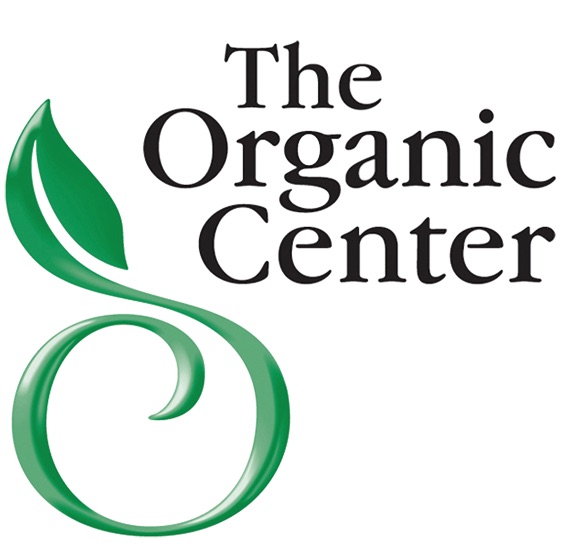
How the USDA Handled the Aurora Organic Dairy Investigation is Very Damaging to the Industry and Consumers
In May, when The Washington Post wrote about the millions of pounds of fraudulent organic grains being imported to the U.S., it sent the industry and politicians into a frenzy.
The Organic Trade Association subsequently formed a task force to address this issue, and Congress got involved as well.
Last week, representatives John Faso (R-NY) and Michelle Lujan Grisham (D-NM) co-sponsored the Organic Farmer and Consumer Protection Act, which would grant the National Organic Program $15 million to $24 million annually from 2018 to 2023. The funds would be used to bolster enforcement here and abroad.
This bill comes on the heels of the USDA’s Inspector General issuing a scathing report saying that fraudulent organic imports are reaching American consumers because of lax enforcement at ports.
While claims of fraudulent organic imported grains have been circulating for many years from both American organic farmers and the Cornucopia Institute, at least the government is finally addressing it.
The same cannot be said when it comes to organic milk.
Along with delving into the issue of fraudulent grains, The Washington Post also did a year-long investigation into Aurora Organic Dairy, which was published on May 1st.
From eight in-person visits and using satellite and drone photos, the paper reported that at no point were more than 10% of Aurora’s herd out grazing. (All cows must have daily access to grazing, an absolutely critical aspect of producing organic milk.)
The Post also did a laboratory analysis for key indicators of grass-fed milk, which showed that Aurora’s organic milk matched conventional milk, instead of organic milk.
When the paper contacted Aurora’s organic certifier, Colorado Department of Agriculture, it was discovered that the certifier visited Aurora’s High Plains operation in November, after the grazing season was over. Therefore, the certifier would never have known if Aurora’s grazing operations were truly in compliance with organic regulations.
On May 2nd, one day after The Post published its story about Aurora, the Cornucopia Institute filed a complaint with the USDA against the organic dairy. (This was the second complaint Cornucopia filed against Aurora; the first one, in 2007, found that Aurora was in violation of organic regulations but the company reached a settlement with the government, which allowed it to continue operating.)
Just last week, the USDA announced that it had completed a months-long investigation of Aurora and closed the complaint, saying that the USDA found no “clear and substantive evidence that the existing organic regulations” on grazing were violated.
According to The Washington Post, the USDA said it reviewed grazing records from last year but did not share the contents of those records or how they might have shown that Aurora was meeting grazing requirements.
Mark Kastel, Co-Director of the Cornucopia Institute, was both disappointed in the USDA’s decision and the transparency in the investigative process. A few days ago, his organization filed a Freedom of Information Act (FOIA) request to force the USDA to disclose the details about this matter. There is no timetable as to when Cornucopia will receive a response to its FOIA request or if they will get one at all.
“The USDA is not enforcing the law and ignored voluminous documentary evidence that Aurora was in violation of organic standards. Consumers of organic milk are being ripped off, and some organic dairy farmers are being forced to switch back to conventional production, or exit the industry altogether, because they can’t compete on a playing field that is not level,” said Kastel.
******
MY TAKE
Given the overwhelming evidence that something was seriously awry with the way in which Aurora Organic Dairy was operating, the findings from the USDA are very damaging to the organic seal, largely because there was so little transparency in how the agency arrived at its decision.
While the imported grain issue may be partially due to a lack of resources, the Aurora situation indicates a lack of will to crack down on a major industry player.
Walmart, Costco and Albertsons all purchase organic milk from Aurora. As such, one could speculate that these companies put pressure on the USDA not to punish Aurora, since doing so would have an incredibly adverse impact on their ability to supply product to their customers.
Fortunately, the imported grains issue drew a response from politicians in D.C. and the Organic Trade Association; yet, the Aurora decision drew neither. This is very problematic.
If we can’t rely on the USDA to diligently enforce the rules, or at least be transparent in how they are enforcing them, what does this mean for the long-term health of organic and the financial viability of small organic family farmers?
In the short-term, it points to this:
– When buying organic milk, consumers would be well-advised to reference Cornucopia’s Dairy Scorecard, which independently rates all organic dairy brands. Four and five-star rated brands are located throughout much of the U.S.
– This lack of enforcement will eventually create a two-tiered system in organic: USDA organic products, and USDA organic products that also have the Regenerative Organic Certification seal or the Demeter (Biodynamic) seal.
How the USDA handled the Aurora matter and the lack of response from the industry should make us all very uneasy.
 |
Have a great day! 
Max Goldberg, Founder |
Quick Hits
* Two new food movies that you may want to know about:
* – How We Grow chronicles the trials and tribulations of farming at 7,000 feet in Colorado.
* – Gaining Ground tells the story of wheat farmers and urban gardeners as they shift to sustainable farming.
* On Living Maxwell, I wrote about my time at the Common Ground Country Fair put on by the Maine Organic Farmers and Gardeners Association. What a special few days.
* Organic Farmers Association has announced a new Policy Director and elected its first Policy Committee. Details are here.
* In what is sure to be a big hit, plant-based chef Matthew Kenney is planning to open a Mexican restaurant in New York City’s East Village.
* In related news, I am hearing rumors that Matthew Kenney’s former partner at Pure Food & Wine, Sarma Melngailis, is set to be released from jail soon and is planning to open a new food venture.
* It’ll be interesting to see who backs her, given that she has admitted to previously stealing money from an investor.
* A food hall is coming to South Beach in early 2018 called Time Out Market Miami.
* JugoFresh, a pressed organic juice chain in South Florida, and Paradigm Kitchen, a restaurant concept also started by JugoFresh’s Matthew Sherman, will both have a presence in this new food hall. The renderings look very cool.
Weekly News Summaries


Certified Transitional Organic Program May Be in Jeopardy
By Dave Fusaro
With a new administration running the USDA and a lack of political appointees in place, the Certified Transitional program is in serious limbo.

John Mackey: Whole Foods Escaped the 'Whole Paycheck' Trap
By Dan Malovaney
In a strange and slightly unsettling interview, John Mackey compared himself to Houdini and also said "amazing things are coming" but he didn't know what.
How Dr. Bronner's is Playing a Vital Role in Fixing the Food System
By Lisa Held
Even though it is known to many as a soap company, Dr. Bronner's is taking on a real leadership role in steering the food system in the right direction.

Study: Organic Farming is Superior in Fostering Soil Biodiversity
Research out of Sweden has shown the organic is superior to conventional farming when it comes to increasing beneficial fungi in the soil.

In its First Month, Amazon Sold $1.6M in Whole Foods-Branded Products
By Heather Haddon
While $1.6 million is a drop in the bucket, compared to Amazon's $8 billion monthly online revenue number, this figure could rise significantly once Amazon puts its full weight behind Whole Foods-branded products.


Monsanto Lobbyists Banned from European Parliament
By Arthur Neslen
After failing to show up for hearings into allegations of regulatory interference, Monsanto lobbyists have been banned from entering the European parliament.

Secretary Zinke Facing Pressure to Reverse Ban on GMOs and Neonics
By Christine Haughney
Secretary of the Interior Ryan Zinke is facing pressure to overturn Obama-era bans on GMOs and neonicotinoid pesticides in National Wildlife Refuges.


A Lawsuit May Thwart Campbell's $700M Acquisition of Pacific Foods
By Elaine Watson
A $250 million shareholder lawsuit against Pacific Foods may end up derailing Campbell's plans to purchase the company.

Unilever Acquires Organic Food Company Mãe Terra
Wanting to tap into the world's 5th largest market for healthy food and beverages, Unilever has purchased Mae Terra, a Brazilian company which makes organic and natural food products.

Jet.com to Launch New Brand Geared Towards Millennials
By Sarah Perez
Uniquely J, which will be a new 'everyday essentials' grocery line, has some pretty fantastic packaging.

Danone Takes a Stake in Organic Baby Food Start-Up
As its fourth investment within the last year, Danone has taken an equity stake in Yooji, a French organic baby food company.
The material in this newsletter is copyrighted and may be reprinted by permission only. All requests must be in writing. Please use our contact form to request republication rights.
Newsletter Archive
Quick Hits
* Two new food movies that you may want to know about:
* – How We Grow chronicles the trials and tribulations of farming at 7,000 feet in Colorado.
* – Gaining Ground tells the story of wheat farmers and urban gardeners as they shift to sustainable farming.
* On Living Maxwell, I wrote about my time at the Common Ground Country Fair put on by the Maine Organic Farmers and Gardeners Association. What a special few days.
* Organic Farmers Association has announced a new Policy Director and elected its first Policy Committee. Details are here.
* In what is sure to be a big hit, plant-based chef Matthew Kenney is planning to open a Mexican restaurant in New York City’s East Village.
* In related news, I am hearing rumors that Matthew Kenney’s former partner at Pure Food & Wine, Sarma Melngailis, is set to be released from jail soon and is planning to open a new food venture.
* It’ll be interesting to see who backs her, given that she has admitted to previously stealing money from an investor.
* A food hall is coming to South Beach in early 2018 called Time Out Market Miami.
* JugoFresh, a pressed organic juice chain in South Florida, and Paradigm Kitchen, a restaurant concept also started by JugoFresh’s Matthew Sherman, will both have a presence in this new food hall. The renderings look very cool.
